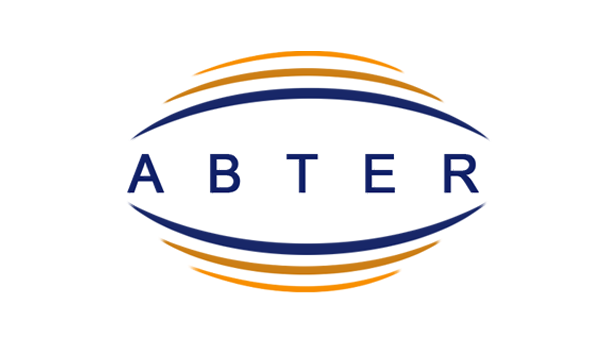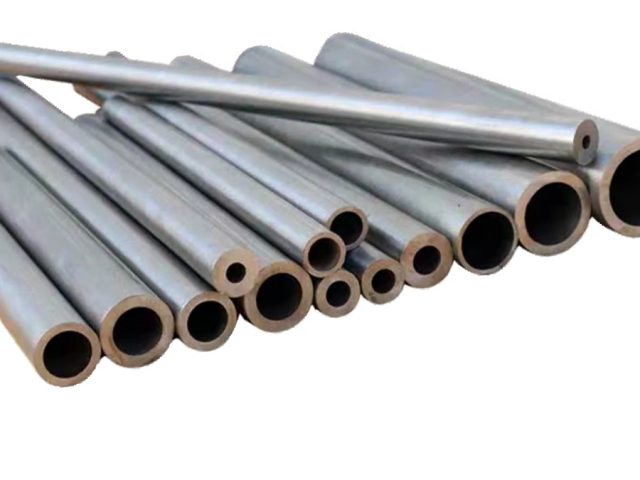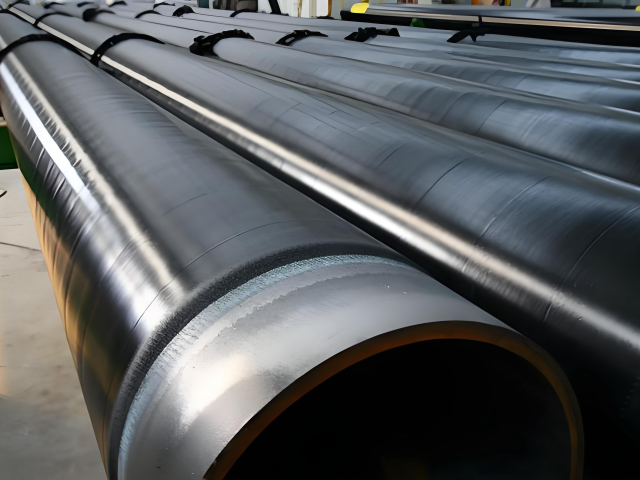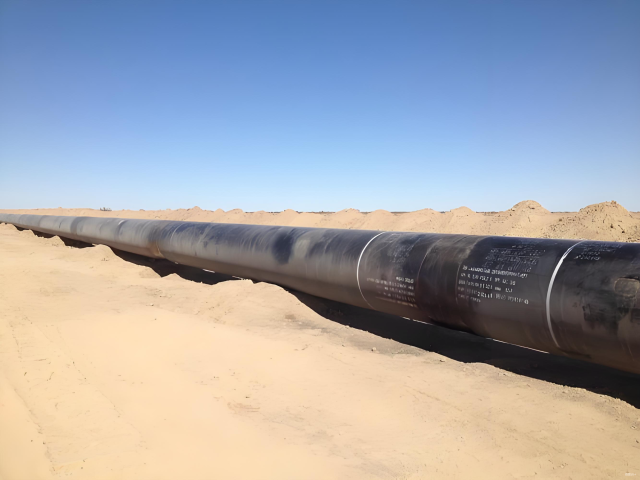A312 TP316Ti Stainless Steel Boiler Pipe
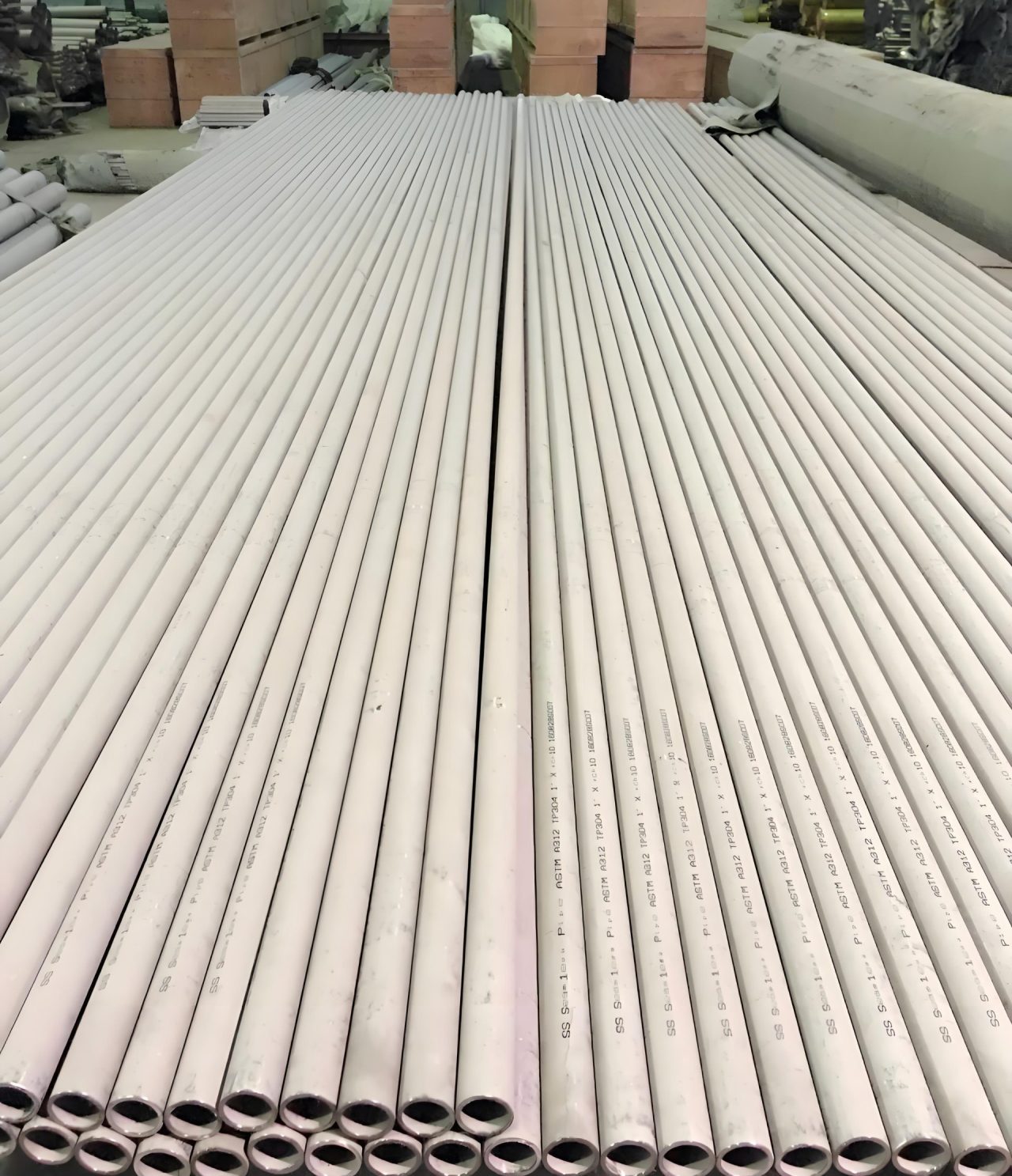
A312 TP316Ti Stainless Steel Boiler Pipe: Properties, Applications, and Market Insights
Abstract
A312 TP316Ti stainless steel boiler pipe (UNS S31635, W.Nr 1.4571) is an austenitic chromium-nickel stainless steel alloy stabilized with titanium, designed for high-temperature and corrosive environments. Compliant with ASTM A312, these seamless and welded pipes offer excellent resistance to intergranular corrosion and high-temperature oxidation, making them ideal for boiler systems, chemical processing, and feed additive production. In facilities producing feed additives like chicken liver powder and choline chloride, A312 TP316Ti pipes ensure durability in acidic and high-temperature conditions. The global market for A312 TP316Ti pipes is projected to grow at a CAGR of 4.8% from 2025 to 2032, driven by demand in energy, chemical, and food processing sectors. This report examines the material properties, manufacturing processes, applications, and market trends of A312 TP316Ti boiler pipes, highlighting their role in high-performance applications and synergy with feed additive industries. Challenges include raw material price volatility, but opportunities lie in sustainable manufacturing and expanding industrial applications.
1. Introduction
A312 TP316Ti stainless steel boiler pipe (UNS S31635, W.Nr 1.4571) is an austenitic stainless steel alloy with 16–18% chromium, 10–14% nickel, 2–3% molybdenum, and titanium (5xC min, 0.7% max), designed for superior corrosion resistance and high-temperature performance up to 1600°F (871°C). Compliant with ASTM A312, these seamless and welded pipes are widely used in boiler systems, chemical processing, and feed additive production, where resistance to intergranular corrosion and acidic environments is critical. In feed additive facilities, A312 TP316Ti pipes are employed in heat exchangers and process piping for producing chicken liver powder and choline chloride, withstanding corrosive acids like phosphoric and sulfuric acid. The alloy’s titanium stabilization prevents carbide precipitation during welding, ensuring structural integrity. The global market for A312 TP316Ti pipes is expected to grow at a CAGR of 4.8% from 2025 to 2032, driven by demand in energy, chemical, and food processing sectors. This report provides a comprehensive analysis of the properties, manufacturing processes, applications, and market dynamics of A312 TP316Ti boiler pipes, emphasizing their role in feed additive production and other high-performance applications, offering insights for manufacturers and engineers.
2. Material Properties
2.1 Chemical Composition and Mechanical Properties
A312 TP316Ti stainless steel boiler pipe is an austenitic alloy with a composition optimized for corrosion resistance and high-temperature strength. It contains 16.0–18.0% chromium, 10.0–14.0% nickel, 2.0–3.0% molybdenum, and titanium (5xC min to 0.7% max), with a maximum carbon content of 0.08%. Chromium provides oxidation resistance, while molybdenum enhances pitting and crevice corrosion resistance in chloride-rich environments. Titanium stabilizes the alloy against intergranular corrosion by preventing chromium carbide precipitation during welding or high-temperature exposure. Table 1 outlines the chemical composition. Mechanically, A312 TP316Ti pipes offer a minimum tensile strength of 75 ksi (515 MPa), yield strength of 30 ksi (205 MPa), and 35% elongation, per ASTM A312. The alloy maintains excellent mechanical properties from cryogenic temperatures to 1600°F (871°C), with a hot-working range of 1700–2200°F (927–1204°C). In feed additive production, A312 TP316Ti pipes resist acidic conditions during choline chloride synthesis, extending equipment life by 15–25% compared to standard stainless steels. These properties make A312 TP316Ti a reliable choice for boiler pipes in demanding applications.
| Element | Content (%) |
|---|---|
| Chromium (Cr) | 16.0–18.0 |
| Nickel (Ni) | 10.0–14.0 |
| Molybdenum (Mo) | 2.0–3.0 |
| Titanium (Ti) | 5xC min–0.7 max |
| Carbon (C) | ≤0.08 |
| Manganese (Mn) | ≤2.0 |
| Silicon (Si) | ≤0.75 |
| Phosphorus (P) | ≤0.045 |
| Sulfur (S) | ≤0.030 |
Source: ASTM A312, ASME SA312
2.2 Corrosion and High-Temperature Resistance
A312 TP316Ti stainless steel boiler pipes exhibit excellent resistance to corrosion and high-temperature oxidation, making them suitable for aggressive environments. The 16–18% chromium content forms a passive oxide layer, protecting against oxidation and scaling up to 1600°F (871°C). Molybdenum (2–3%) enhances resistance to pitting and crevice corrosion in chloride-rich environments, such as seawater or brine, with corrosion rates as low as 0.1 mm/year in 10% NaCl at 60°C. Titanium stabilization prevents intergranular corrosion by binding carbon, avoiding chromium carbide precipitation during welding or prolonged exposure at 800–1500°F (427–816°C). In feed additive production, A312 TP316Ti pipes withstand acidic media (e.g., phosphoric acid in choline chloride processing) and sulfur-containing flue gases during chicken liver powder drying, extending equipment life by 15–25%. The alloy’s resistance to stress-corrosion cracking in chloride environments surpasses that of TP304, making it ideal for boiler systems and chemical processing. Its weldability, using filler metals like AWS A5.9 ER316Ti, ensures strong welds without sensitization. These properties ensure A312 TP316Ti pipes are reliable in high-temperature and corrosive applications.
3. Manufacturing Processes
3.1 Seamless Pipe Production
Seamless A312 TP316Ti stainless steel boiler pipes are manufactured using advanced metallurgical processes to ensure high quality and performance. The process begins with hot extrusion of stainless steel billets at 1700–2200°F (927–1204°C), followed by cold drawing to achieve precise dimensions (1/8” to 24” nominal pipe size, SCH 10S to SCH 80S). Solution annealing at 1900–2000°F (1040–1093°C), followed by rapid quenching, prevents sensitization and optimizes corrosion resistance by maintaining the austenitic microstructure. Quality control includes hydrostatic testing (up to 2500 psi for SCH 40 pipes), ultrasonic or eddy-current testing to detect defects, and positive material identification (PMI) to verify chemical composition. Pipes are tested for tensile strength (≥515 MPa), yield strength (≥205 MPa), and elongation (≥35%), per ASTM A312. In feed additive production, seamless A312 TP316Ti pipes are used in heat exchangers for drying chicken liver powder and process piping for choline chloride, ensuring reliability under high-pressure and acidic conditions. The manufacturing process supports customized lengths (up to 12 meters) and meets standards like ASME SA312 and EN 10216-5, making A312 TP316Ti pipes suitable for critical boiler applications.
| Process | Parameter |
|---|---|
| Hot Extrusion | 1700–2200°F (927–1204°C) |
| Annealing | 1900–2000°F (1040–1093°C), quench |
| Testing | Hydrostatic (up to 2500 psi), ultrasonic, PMI |
| Dimensions | 1/8”–24” NPS, SCH 10S–80S |
| Length | Up to 12 meters |
Source: ASTM A312, ASME SA312
3.2 Welded Pipe Fabrication and Quality Assurance
Welded A312 TP316Ti stainless steel boiler pipes are fabricated from flat-rolled sheets, formed into cylindrical shapes, and welded using TIG or plasma arc techniques. Welded pipes range from 1/8” to 48” nominal pipe size, with schedules from SCH 5S to SCH 80S, and undergo 100% X-ray inspection to ensure weld integrity. Post-weld solution annealing at 1900–2000°F (1040–1093°C) eliminates residual stresses and prevents sensitization, maintaining corrosion resistance. Titanium stabilization ensures welds remain resistant to intergranular corrosion, critical for feed additive production involving acidic media like phosphoric acid. Quality assurance includes mechanical testing (flattening, flaring, tensile), corrosion testing (ASTM A262 for intergranular corrosion), and dimensional checks to meet ASTM A312 and ASME SA312 standards. Welded pipes are cost-effective for low-to-medium pressure applications, such as process piping in choline chloride synthesis, where corrosion resistance is prioritized. Surface finishes, such as pickled or polished, enhance resistance to scaling and contamination in food-grade applications like chicken liver powder processing. These rigorous processes ensure A312 TP316Ti welded pipes meet the demands of boiler and chemical processing systems.
4. Applications
A312 TP316Ti stainless steel boiler pipes are critical in industries requiring corrosion resistance and high-temperature performance. In feed additive production, seamless and welded TP316Ti pipes are used in heat exchangers for drying chicken liver powder and process piping for choline chloride synthesis, resisting acidic media (e.g., phosphoric acid) and sulfur-containing gases, with a 15–25% longer lifespan than TP304. In boiler systems, TP316Ti pipes handle high-pressure steam up to 1600°F (871°C), used in power generation and industrial heating. Chemical processing employs these pipes for handling sulfuric, phosphoric, and hydrochloric acids, with corrosion rates as low as 0.1 mm/year in 10% H2SO4 at 80°C. Food processing, including pet food production, benefits from TP316Ti’s hygienic properties and resistance to chloride-induced corrosion. Other applications include pharmaceutical equipment, marine systems (seawater piping), and pulp and paper industries, where pitting resistance is critical. Table 3 lists key applications. Compliance with ASTM A312 and ASME BPVC ensures safety and performance, reducing maintenance costs by 15–20% in feed additive plants.
| Industry | Application |
|---|---|
| Feed Additives | Heat exchangers, choline chloride piping |
| Power Generation | Boiler tubes, steam piping |
| Chemical Processing | Acid handling, reactors |
| Food Processing | Pet food production, hygienic piping |
| Pharmaceutical | Process piping, clean systems |
| Marine | Seawater piping, exhaust systems |
5. Market Trends and Insights
The global market for A312 TP316Ti stainless steel boiler pipes is projected to grow at a CAGR of 4.8% from 2025 to 2032, reaching USD 2.5 billion, driven by demand in power generation, chemical processing, and food processing sectors, including feed additive production. The Asia-Pacific region, particularly China and India, holds a 50% market share, fueled by expanding chemical and livestock feed industries, such as chicken liver powder and choline chloride production. North America and Europe, with 22% and 18% shares, benefit from advanced energy sectors and stringent quality standards. Seamless pipes account for 55% of the market due to their high-pressure capabilities, while welded pipes cater to cost-sensitive applications. Innovations in sustainable manufacturing, such as energy-efficient rolling and recycling of stainless steel scrap, reduce production costs by 10–15%. Challenges include raw material price volatility (chromium, nickel) and competition from nickel alloys like Incoloy 825. Opportunities lie in renewable energy (e.g., biomass boilers) and feed processing, where TP316Ti’s corrosion resistance enhances equipment lifespan by 15–25%. Strategic R&D and regional market expansion will drive growth, aligning with global industrial and sustainability trends.
6. Comparative Analysis with Other Alloys
A312 TP316Ti stainless steel boiler pipes offer distinct advantages over alloys like A312 TP316, Incoloy 825, and Incoloy 800. Compared to TP316 (16–18% Cr, 10–14% Ni, no Ti), TP316Ti’s titanium stabilization prevents intergranular corrosion during welding, making it ideal for high-temperature applications up to 1600°F (871°C). Incoloy 825 (38–46% Ni, 19.5–23.5% Cr) provides superior resistance to sulfuric and phosphoric acids but is costlier (USD 35–40/kg vs. USD 10–15/kg for TP316Ti), limiting its use in budget-sensitive applications. Incoloy 800 (30–35% Ni, 19–23% Cr) excels in carburization resistance but lacks TP316Ti’s pitting resistance in chloride environments. Table 4 compares these alloys. TP316Ti’s balance of cost, corrosion resistance, and high-temperature performance makes it a preferred choice for boiler pipes in feed additive production and chemical processing, offering a cost-effective alternative to nickel alloys.
| Alloy | Nickel (%) | Chromium (%) | Temp. Resistance (°F) | Cost (USD/kg) |
|---|---|---|---|---|
| A312 TP316Ti | 10–14 | 16–18 | Up to 1600 | 10–15 |
| A312 TP316 | 10–14 | 16–18 | Up to 1600 | 10–15 |
| Incoloy 825 | 38–46 | 19.5–23.5 | Up to 1000 | 35–40 |
| Incoloy 800 | 30–35 | 19–23 | Up to 1500 | 30–35 |
A312 TP316Ti stainless steel boiler pipes (UNS S31635, W.Nr 1.4571) are critical for applications requiring corrosion resistance and high-temperature performance, offering excellent resistance to intergranular corrosion, pitting, and oxidation up to 1600°F (871°C). Their composition, with 16–18% chromium, 10–14% nickel, 2–3% molybdenum, and titanium stabilization, ensures durability in feed additive production, such as heat exchangers for chicken liver powder and piping for choline chloride, reducing maintenance costs by 15–25%. The global market, projected to grow at a CAGR of 4.8% to USD 2.5 billion by 2032, is driven by demand in power generation, chemical processing, and food processing sectors. Innovations in sustainable manufacturing and applications in renewable energy offer growth opportunities, despite challenges like raw material price volatility. Manufacturers can leverage A312 TP316Ti’s cost-effectiveness and performance to develop reliable equipment, meeting the demands of modern industrial and feed additive applications. For further inquiries or customized solutions, please contact us at [insert contact details]. A312 TP316Ti boiler pipes remain a cornerstone for high-performance industrial solutions, with strong market potential in 2025 and beyond.
